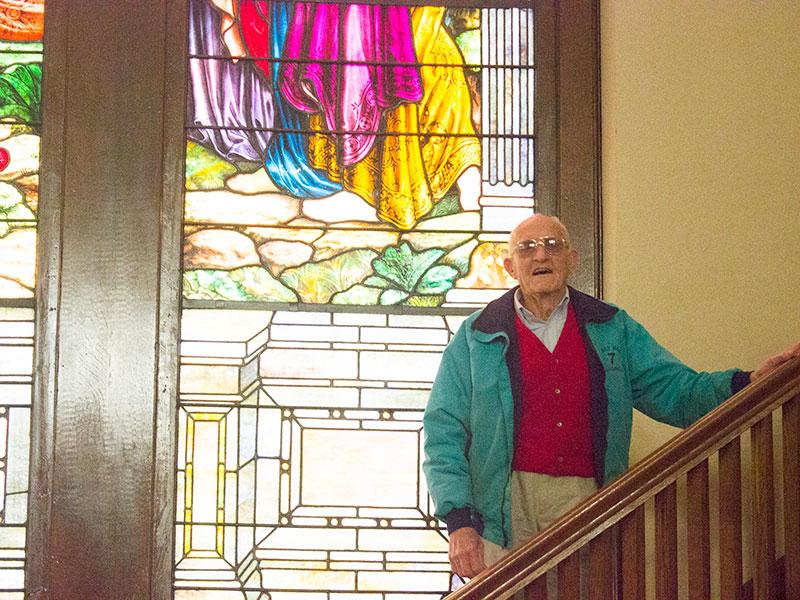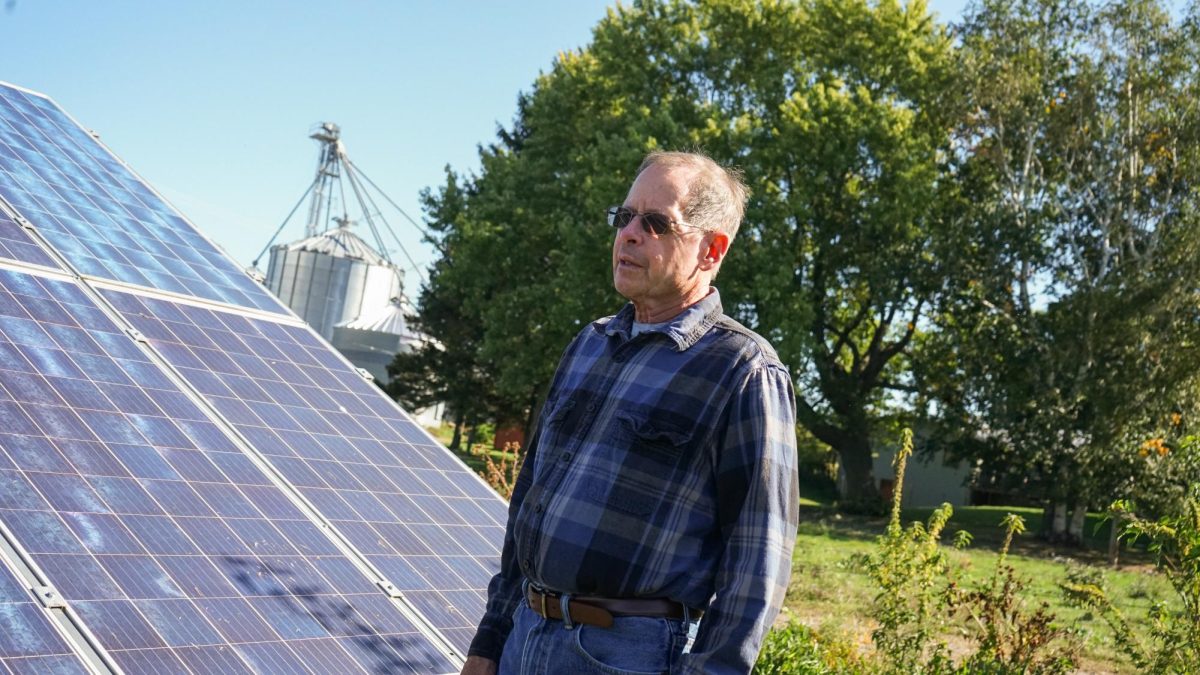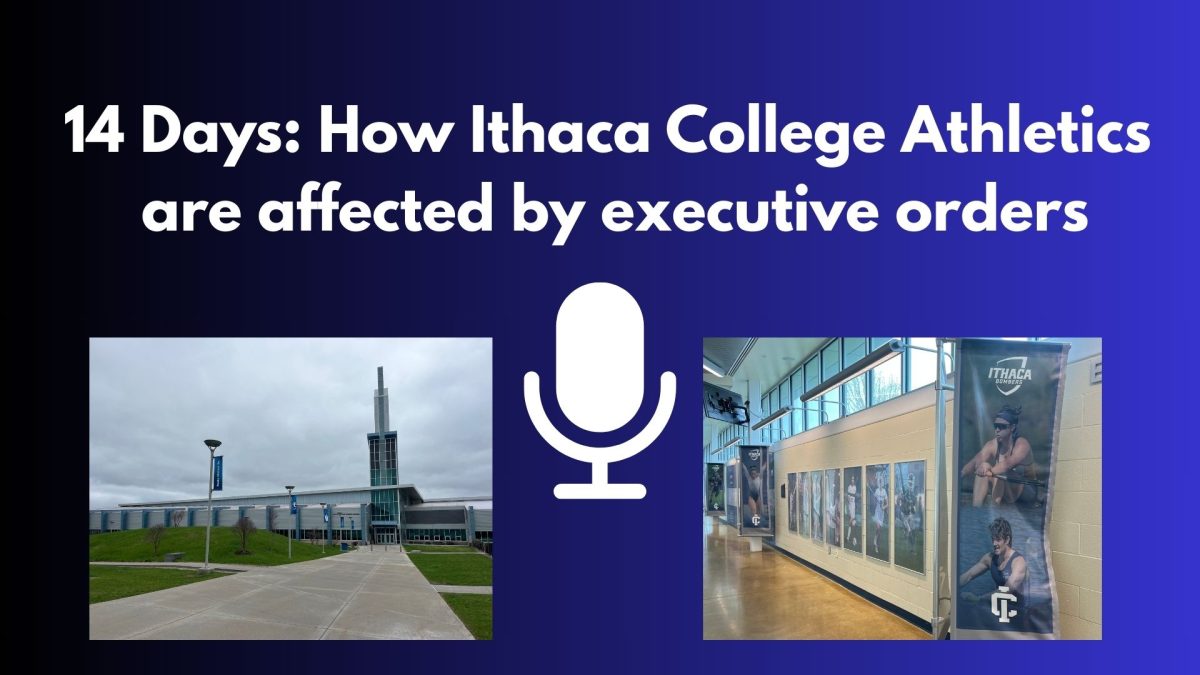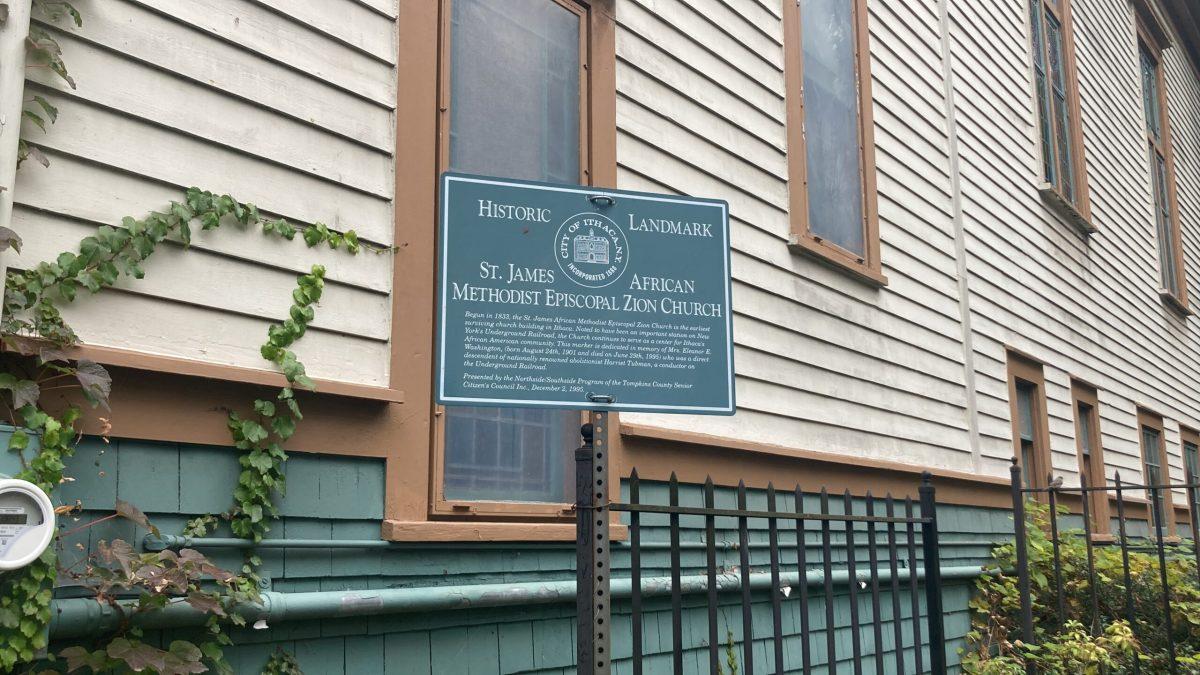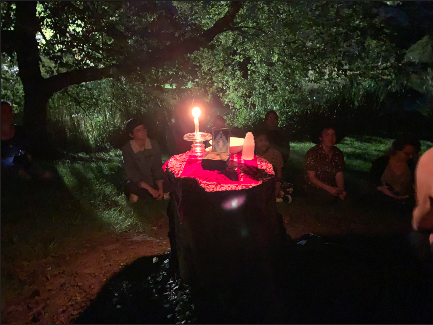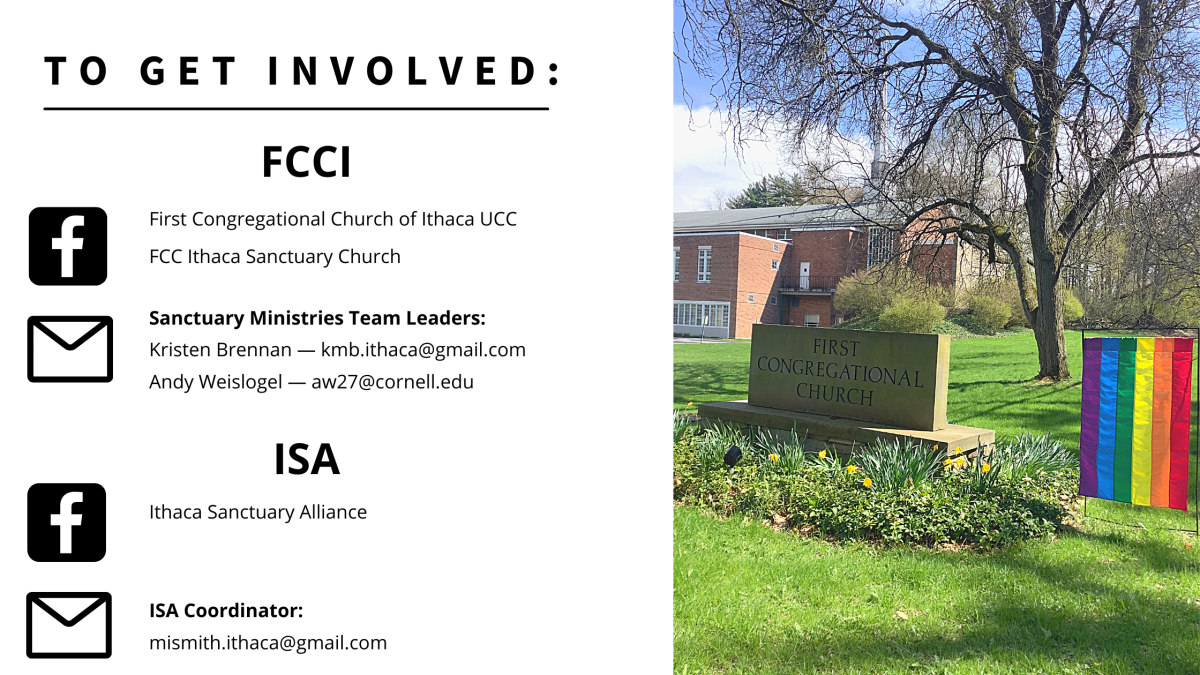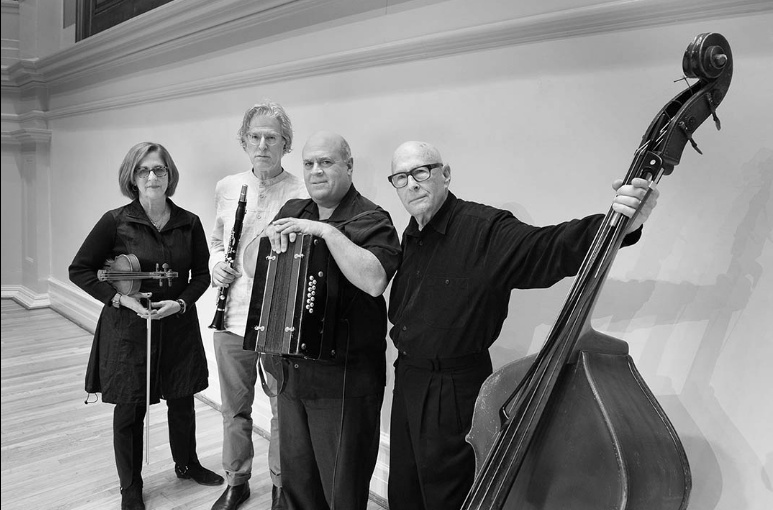The then 19-year-old Waldrop could see the smoke cloud rising higher and higher from the rubble.
“I can remember at night watching gunfighting back and forth and up into the mountains,” he said. “It was an event that changed my life, both as a person going from a boy to a man, and just having more of an awareness of a spiritual being.”
Waldrop became a member of St. Paul’s United Methodist Church in downtown Ithaca after he returned from active duty. He said the sense of community he experiences there is reminiscent of his time spent on a small combatant ship in the Navy.
“In one instance, we went out to sea for 39 days straight days with no land,” Waldrop said. “It’s a bonding experience that you can get in all aspects of life.”
Men who experienced intense combat were more than twice as likely to turn to prayer than those who did not, according to an analysis of archived World War II surveys of Army Infantry published in the June/July 2013 issue of the Journal of Religion and Health,
The co-authors of the study, Craig Wansink and Brian Wansink, are brothers and also professors at Virginia Wesleyan College and Cornell University, respectively.
Craig, the coordinator of the Department of Religious Studies at Virginia Wesleyan, said he and his brother wanted to highlight that communities are important in responding to the experience of intense combat.
“Religion involves a sense of community, and those combatants who focused on a ‘band of brothers’ seemed to find a common sense of community with the context of a church community,” Craig said.
Though the Wansink study only applied to World War II veterans, Craig said he anticipates similar results if they applied the same analysis to veterans of more recent or ongoing military conflicts.
“Although I have never experienced the horrors of combat, I’m confident that those who have, even today, would find some comfort in being with a group of people that focuses weekly on issues of life, death and ultimate significance,” Craig said. “So much else in the world might just seem painfully trivial.”
Robert Nobles, 93, was taken as a prisoner of war after D-Day during World War II while serving in the Air Force. He said being a member of St. Paul’s United Methodist Church for more than 60 years has provided him with a strong sense of community.
“The church is like a big family,” he said. “They have a seniors dinner once a month and I go to that.”
David Allen, also a member of St. Paul’s United Methodist Church, served off the coast of Vietnam on an aircraft carrier from 1965 until the end of the war in 1975. He said he did not engage in actual combat, but acknowledges the therapeutic power of a church community, especially for more recent veterans.
“Younger people, people who have been involved in Iraq and Afghanistan, might be much more emotionally affected by what they went through, as opposed to what I had to do or what I did,” Allen said.

